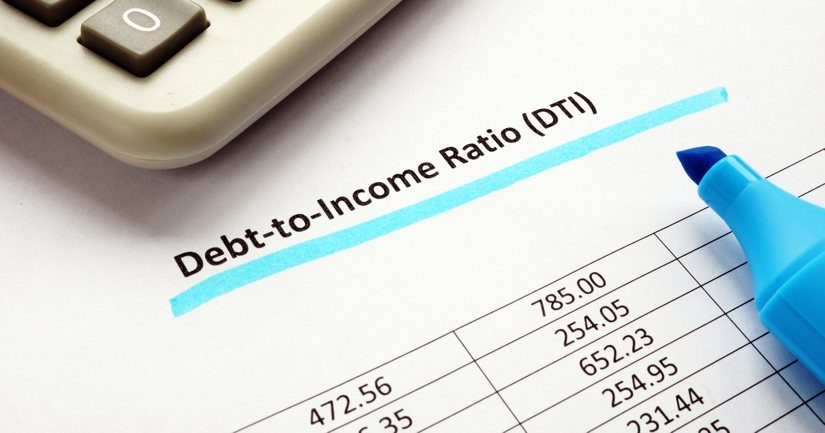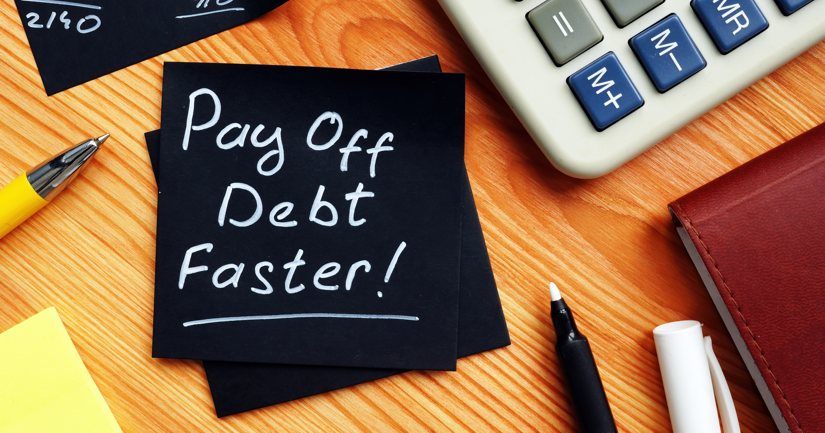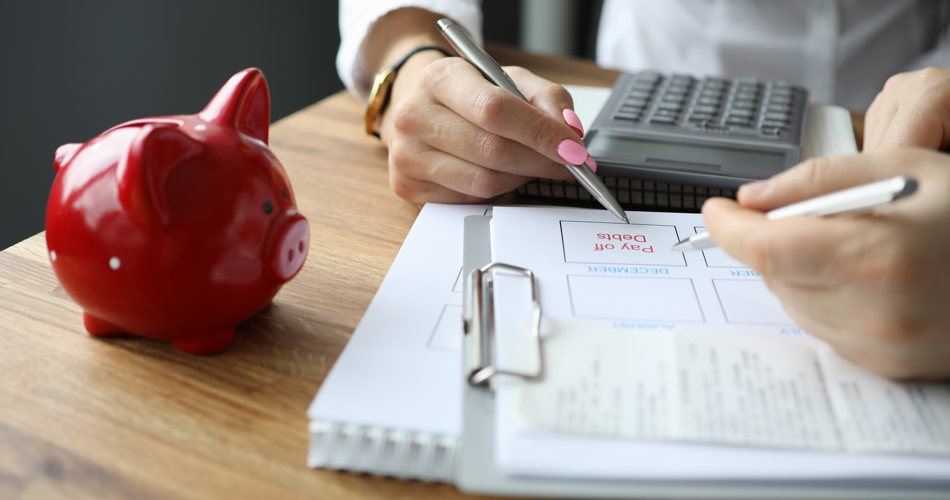If you want to become a homeowner and you’re carrying debt, you may be asking yourself, “Should I pay off debt before buying a house?” Luckily, carrying debt doesn’t have to ruin your chances of getting approved for the home you want.
But should you pay off debt or save for a house? Can you do both? Understanding the home loan process is key to making those decisions and avoiding common mistakes that could prevent you from getting your dream home.
When you apply for a mortgage loan, the lender will take into account any debt you have. This will affect how much you can borrow, the interest rate you’ll pay, and other loan terms. Don’t worry – we’ll help you navigate the process so you can achieve your homeownership goals.
Why Is Credit Card Debt Such A Big Factor When Buying A Home?
Having credit card debt won’t automatically disqualify you from getting approved for a mortgage, but it could make things harder. It’s important to understand that it can impact how lenders view you as a potential borrower.
Your credit card debt impacts your debt-to-income ratio (DTI), which is a big factor in your mortgage application. Basically, your DTI measures how much of your income would go toward your mortgage payments. If you have a lot of credit card debt, your DTI could be higher, which could hurt your chances of getting approved for a mortgage.
Your credit card debt also has a big impact on your credit score, which matters a lot to the people who lend you money. Lenders carefully examine your credit score and your credit report, where they can see all the different kinds of debt you have and how much you owe.
But if you tackle your credit card debt and pay it down, you’ll be making a smart move that can really boost your score – because owing less money means a better credit score!
Unfortunately, high credit card debt can affect the mortgage payment amount that you can truly afford. To avoid any potential strain, keep in mind that lenders will factor in your credit card debt when evaluating your application. Additionally, a heavy credit card payment every month could overburden your budget and make mortgage payments unmanageable.

Managing Your Debt-to-Income Ratio for a Successful Mortgage Application
If you’re planning to apply for a mortgage, it’s important to understand the concept of debt-to-income ratio (DTI). It’s a formula lenders use to ensure that borrowers can handle their mortgage payment as well as their existing debt.
To calculate DTI, divide your recurring monthly debt payments (such as future mortgage, credit cards, student loans, car loans, etc.) by your gross monthly income. The lower your DTI, the less risky you are perceived by lenders. Generally, lenders prefer to see that all debts combined do not exceed 43% of your gross earnings.
By managing your DTI effectively, you can increase your chances of securing a successful mortgage application.
Imagine you’re a couple with a $7,000 gross monthly income who has a car loan payment of $300, student loan payment of $200, and $300 for credit card debt. You also want to have a $1,800 mortgage payment. Based on this, your Debt-to-Income Ratio (DTI Ratio) would be 37%.
While this is a good DTI Ratio, it’s important to note that some mortgage lenders may have different preferred ratios or make exceptions based on circumstances. However, understanding your DTI Ratio can be helpful when planning to buy a home.
If you are aiming for a higher loan amount, reducing your credit card balances is a smart decision to make before applying.

Take a Look at How Debt Affects Your Credit Score
Your credit score is an important factor in determining if you qualify for a mortgage and what kind of terms you will receive. Lenders are looking to see that you can manage your debt responsibly, as they want to make sure that they lend money to those who have the ability to pay it back.
It’s important to understand how debt affects your credit score, so you can take steps towards improving it before applying for a mortgage loan.
When it comes to determining your credit score, there are many factors that come into play. Credit utilization rate is one of the most important aspects which lenders look at when assessing an individual’s creditworthiness. This ratio measures how much of your available credit you’re currently using and can significantly impact your overall score.
It is calculated by dividing the total amount of debt owed by the total amount of available credit across all accounts. A higher utilization rate can lead to a lower score while a lower utilization rate may result in a better rating. Other factors such as payment history, length of credit history, types of accounts held and number of new inquiries also affect your overall score but usually have less weight than your utilization rate does.
To increase your chances for approval on loans or other forms of financing, it’s important to keep these various aspects in mind when managing debt and building up good financial habits.
Is It Better to Have No Debt or a Bigger Down Payment?
There is no right or wrong answer; it depends on your individual financial situation. Generally, it’s better to have no debt if you can avoid it before buying a house. A larger down payment means you will have a smaller mortgage and will be able to qualify for lower interest rates. This also means that more of your payment goes towards principal and equity rather than interest payments.
That said, having some amount of debt is not necessarily bad as long as it is within your repayment capabilities. Ultimately, the best option would be to pay off as many existing debts first, then save for a sizable down payment in order to reduce the amount owed on the loan and increase your chances of getting approved by a lender.

Tips for Paying Down Debt
Paying off debt can feel overwhelming, but there are some effective strategies that can help you pay it off faster and more efficiently. Here are a few tips to get you started:
- Prioritize paying off your high-interest debt first. Your high-interest debt should be the first to go, as they will continue to accrue more interest the longer you keep them.
- Pay more than the minimum each month. Making only the minimum payment on your credit cards won’t get you out of debt quickly. Instead of paying the minimum balance due, make a higher payment so that more of your money is going toward the principal balance rather than interest charges. This will also help to lower your credit utilization percentage, which will help you raise your credit score.
- Consolidate your debts. If you have multiple credit cards or loans with high balances and interest rates, consider consolidating them into one loan. This can help you simplify your repayment plan and potentially save money on interest.
- Take advantage of balance transfer offers. Some credit card companies offer balance transfers with 0% introductory rates or other promotional terms. This could be a great way to reduce the amount of interest you pay as you work towards paying off your debt completely.
- Negotiate lower interest rates. If you have a good credit score, you may be able to negotiate a lower interest rate with your credit card company. This could help you save money and pay off your debt faster.
- Make extra payments whenever possible. Put any additional funds that come in towards paying down your debt balances as soon as you can. It can be hard to pay down a large balance, but every extra dollar you put towards your debt will make a difference in the long run.

Getting Ready to Buy a Home
When deciding whether to pay off debt before buying a house, it’s important to consider your individual financial situation and credit score. Generally speaking, having little-to-no debt is beneficial as it can help you qualify for lower interest rates and better terms on the loan. However, some amount of debt is manageable depending on what kind of repayment plan you have in place. It’s also wise to build up a sizable down payment so more of your payments are going towards principal and equity.
By understanding how different types of debts affect your overall credit score and taking steps towards improving it, such as consolidating or negotiating lower interest rates with creditors, you will increase your chances of getting approved for a mortgage, and with a better rate too!








0 Comments